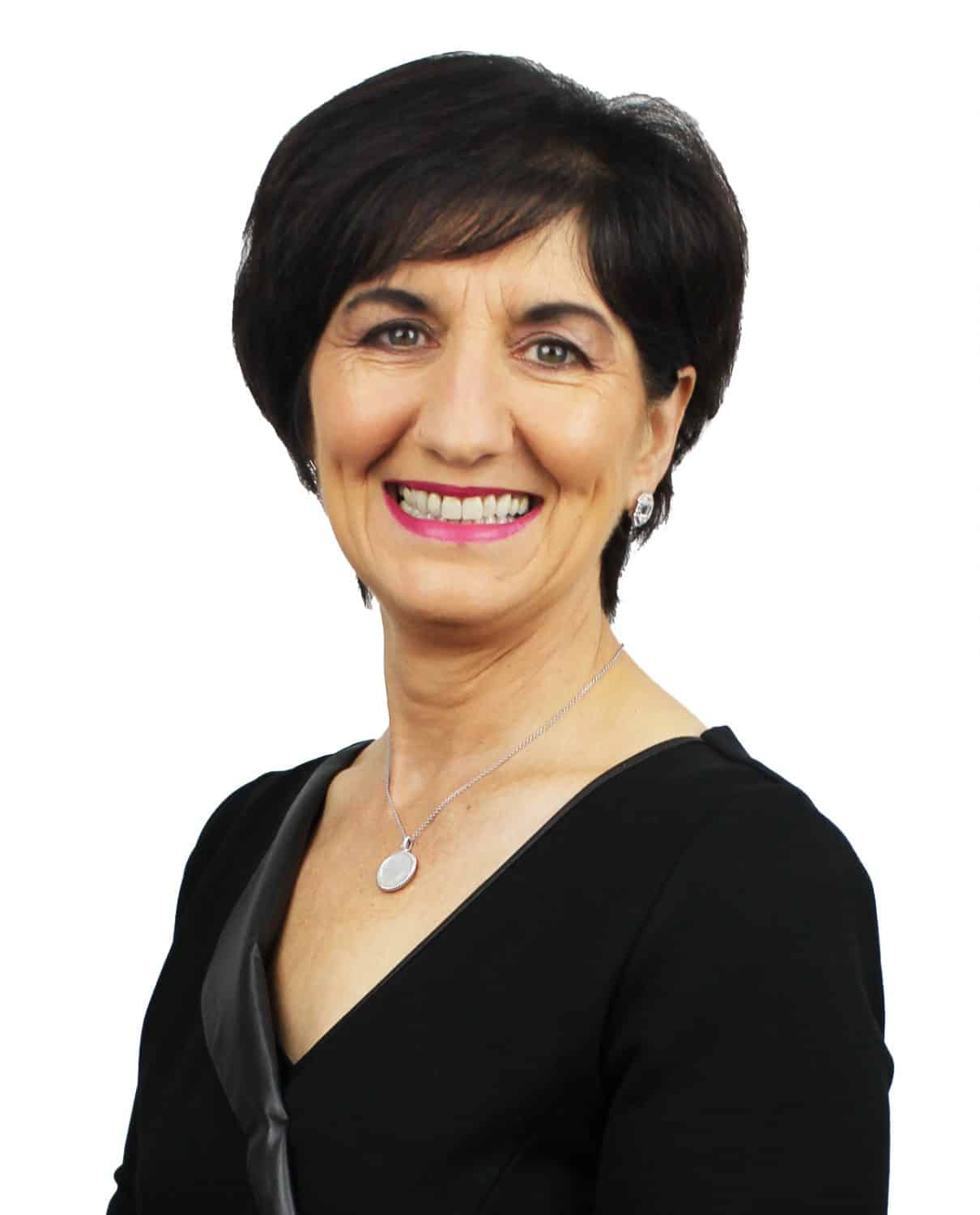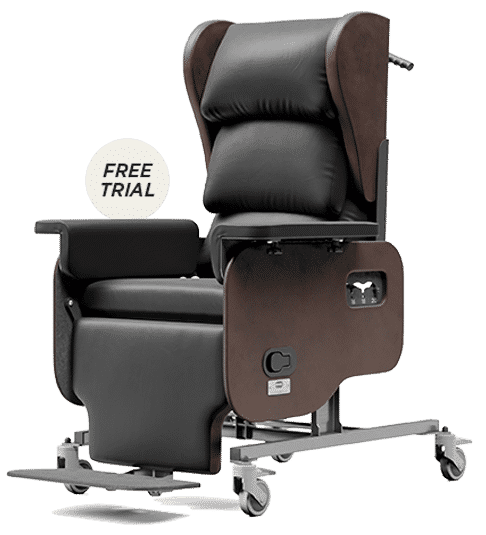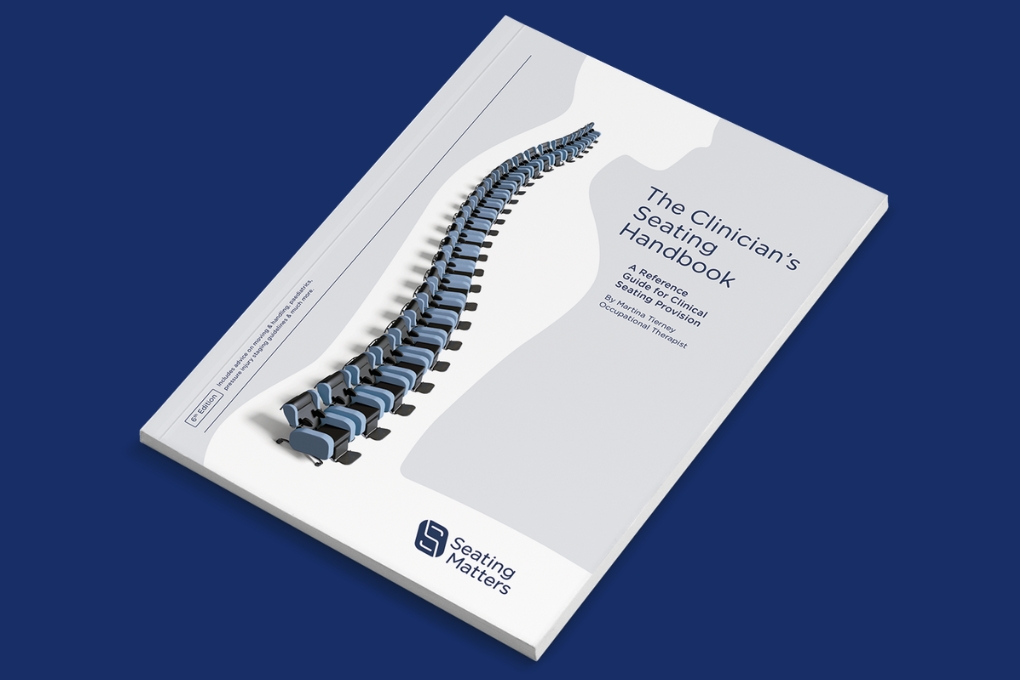SEATING PATIENTS WITH COMPLEX NEEDS
In a daily case load, each patient we encounter is different, with individual needs which change and evolve throughout the duration of their medical condition. When seating patients with complex conditions such as Huntington’s Disease, Motor Neuron/ALS or Parkinson’s Disease, these needs are often more challenging and severe.
Patients with complex conditions suffer from various uncontrollable symptoms meaning they can be more challenging to seat; these symptoms can include but are not limited to:
- Low mobility.
- Postural instability.
- Involuntary movements.
- Loss of voluntary movement.
- Low/high muscle tone.
- Rigidity.
- Muscle degeneration.
- Weakness.
- Fatigue.
- Confusion / altered mental state.
- Agitation.

Conditions That Can Prove Challenging to Seat
Parkinsons Disease – Those suffering from Parkinsons disease can suffer from arm and leg tremors, rigidity of the muscles, as well as pain in the back, neck shoulders and chest, which need to be considered in seating and selecting the correct chair.
Multiple Sclerosis / MS – Patients suffering from MS endure extreme fatigue, pain, loss of muscular strength as well as spasticity of the muscles which can lead to uncontrolled movements. These need to be factored into selection of the right seating solution.
ALS/Motor Neuron Disease – Patients with ALS/Motor Neuron Disease often present spasticity of the muscles which can lead to uncontrolled muscle movements, weakness and muscle degeneration which can eventually lead to paralysis of the limbs. Their rapidly changing needs need to be accommodated in one solution and can be catered for in a multi adjustable chair.
Huntington’s Disease – It has been said that having Huntington’s Disease Feels Like having ALS, Parkinson’s and Alzheimer’s Disease, all at the same time. One of the most significant side effects of Huntington’s Disease is involuntary movements of the trunk and arms and feet which can result in falls and in the patient coming to extra harm. Comfort and safety are key considerations in selecting an appropriate chair for Huntington’s Disease patients.
Dementia / Alzheimher’s Disease – Patients with Dementia and Alzheimer’s can be one of the most difficult patient groups to seat. This client group present a number of complex needs including agitation in the chair, constant moving in the chair which might leave them at risk of falls and sliding from the chair causing injury.
In our experience, these conditions are some of the most challenging patient conditions to seat as they have a variety of symptoms from their neurological condition which need to be accommodated in one seating solution. Quite often these patients are cared for at home by family members or full time carers so it is important that their seating solution is affordable, reliable, functional, easily adjustable and adaptable to their needs as their condition changes.
Tips for Families and Caregivers
- Get a proper seating assessment – we can help. We have Seating Specialists in your area who can support in a free of charge, no obligation seating assessment, at a time and place to suit you.
- Make sure the patient is comfortable. This goes without saying, if the patient is not comfortable in the chair, the other functions are rendered virtually worthless.
- Know your requirements. Opt for multi – adjustable seating. Know which features are required to accommodate the needs of the patient, and ensure they come as standard on your chair. All of our chairs as standard have back angle recline and a footplate. Do they need postural support? Accessories such as lateral supports can aid postural deformities and can be added at a later date. You can check out our range of chairs here which are multi adjustable to suit changing needs.
- Consider the level of pressure care. Ensure that the chair provides adequate pressure management properties. These patients are sitting for long periods of the day and can be subject to risk of pressure ulcers which can be debilitating. Our chairs are made with memory foam in the back, seat and calf pad as standard. Tilt in space and back angle recline can also aid in pressure management and loading the body.
Consider Chair Materials and Fabrics. As a lot of these patient groups are at risk of involuntary movements or altered mental states, they can also move a lot in their chair/be at risk of sliding and falling, and therefore be exposed to further risk from shear and friction which can ultimately lead to pressure ulcers. All the weight bearing areas on our chairs are covered with Dartex material which is multi stretch, breathable and durable to reduce moisture, increase circulation and reduce the effects of friction and shear.
- Patient dignity. Can the person sit at the table to dine or join others in the family room? To encourage dignity and independence of patients these are very important factors to consider when choosing your seating. The Seating Matters chairs are very mobile throughout a home or care facility, and can have powered adjustments for tilt in space and repositioning, allowing users to be more independent.
As used by








Motor Neuron Disease Chairs
Dealing with Motor Neuron Disease is nothing short of incredibly challenging. As the body’s muscles become weaker and less responsive to the brain, movement and the ability to find comfort independently becomes almost impossible. As such, proper care and attention is required each day to afford those experiencing these conditions a degree of dignity and wellbeing.
A specially-designed motor neuron disease chair is something that is coveted by many and often thought to be out of reach. However, Australian caregivers can access the very best solution available today.
The Chair Motor Neuron Disease Patients Find Comfort in
At Seating Matters, our three decades of expertise in Occupational Therapy affords us a unique insight into what the requirements are of those with special needs. Many years ago, we decided to take action and create a chair that would deliver the kind of comfort, functionality, mobility and stability that any patient requiring care needs.
We committed to the research and development, ensuring that our designers and engineers spent time in clinical settings to get a true sense of what was required, and then we worked tirelessly to make, test and release the best possible chair available on the market.
Our meticulous attention to detail, high-quality manufacturing and quality standards earned us a clinically proven solution that may help prevent pressure injuries and sores.
What You Need in an MND Chair
The search for an MND chair is one that requires the ticking of many different boxes. The patient is at the heart of every decision that we made in designing and crafting our superior chairs. As such, we are dedicated to continuous improvements that will afford them even a little more comfort or functionality.
Pressure management is essential if you are working with patients that are likely to sit for prolonged periods. The discomfort they feel as time passes must be expected to increase. Our chairs are designed to provide relief on this front. We use visco-elastic memory foam combined with Darktex multi-stretch breathable fabric, which is crucial in pressure redistribution.
The features that our chairs include provide a wealth of manoeuvrability and functionality, all of which is incorporated to make both the process of care that little bit easier for hospital and nursing home staff, as well as comfortable for the patient. Tilt in space, elevating leg rest and recline, all promote ease of weight shift that is essential in effective pressure care, or when patients must be transferred elsewhere.
The presence of back angle recline, adjustable seat dimensions and lateral supports all contribute to promoting optimal sitting posture for patients, which limits the possibility of respiratory infections, pain and fixed contractures.
Finally, with regards to mobility, forward tilt, removable arms and patient lift accessibility make this much easier. Transfers are less complicated or onerous to complete and the presence of a push hand and swivel castors also facilitate ease of movement.
Our team has also gone to great lengths to prevent the spread of infections. All chairs have modular parts, which means that there are no surfaces that cannot be cleaned. The materials will stand up to hospital-grade cleaning agents and the upholstery is hard-wearing and will counteract the vast majority of bacteria.
Motor Neuron Disease Chair is the Adjustable Solution for All
At Seating Matters, we appreciate that patients come in all different shapes and sizes, and each one has their own specific needs. As such, our motor neuron disease chair can accommodate the dimensions of the majority of individuals and can be adjusted with ease to afford them the comfort that they need.
Seating Matters provides clinical healthcare seating chairs for Disabled & Elderly people in Australia. We sell bariatric chairs, pressure relief chairs, cerebral palsy chairs, occupational therapy chairs, parkinsons disease chairs, tub aged care chairs, fall prevention chairs, huntington’s disease chairs, multiple sclerosis chairs, brain injury chairs, chairs for demantia patients & other seating range in Australia. Browse our website for more information or contact us for more details.
Read Less




